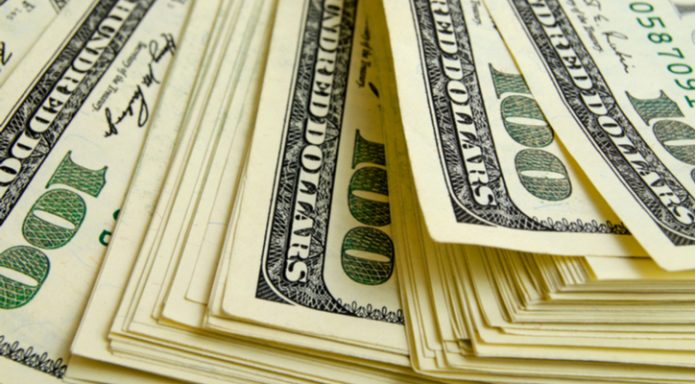The dollar gained in strength on Tuesday as geopolitical tensions receded. The pound US dollar exchange rate fell to $1.4066 after pushing to a high of $1.4244 earlier in the week.
| What do these figures mean? |
|---|
|
When measuring the value of a pair of currencies, one set equals 1 unit and the other shows the current equivalent. As the market moves, the amount will vary from minute to minute. For example, it could be written: 1 GBP = 1.28934 USD Here, £1 is equivalent to approximately $1.29. This specifically measures the pound’s worth against the dollar. If the US dollar amount increases in this pairing, it’s positive for the pound. Or, if you were looking at it the other way around: 1 USD = 0.77786 GBP In this example, $1 is equivalent to approximately £0.78. This measures the US dollar’s worth versus the British pound. If the sterling number gets larger, it’s good news for the dollar. |
The pound has been suffering from a lack of high impact data or fresh headlines to drive the price. Whilst last week was crucial for the pound, this week has been significantly quieter. Last week investors learned that the U.K. had secured a post Brexit transition deal with the EU. This paves the way for a smoother, more supportive Brexit, which should be less disruptive for businesses, the UK economy and therefore the pound. The Bank of England also raised hopes of an interest rate rise, possibly as soon as May, after a 7 — 2 vote split at the monetary policy meeting. This meant that 2 policy makers voted for an immediate rate hike, also boosting the pound.
| Why do raised interest rates boost a currency’s value? |
|---|
| Interest rates are key to understanding exchange rate movements. Those who have large sums of money to invest want the highest return on their investments. Higher interest rate environments tend to offer higher yields. So, if the interest rate or at least the interest rate expectation of a country is relatively higher compared to another, then it attracts more foreign capital investment. Large corporations and investors need local currency to invest. More local currency used then boosts the demand of that currency, pushing the value higher. |
Today the UK economic calendar finally starts to pick up again. Investors will look towards consumer confidence data later this evening. Analysts are forecasting that consumer confidence will remain constant at -10 in March after falling February. Rising prices and falling wages in real terms have kept the UK consumer under pressure for months. Finally, these negatives appear to be easing, however Brexit uncertainties remain. Should consumer sentiment edge higher, the pound could receive a boost.
| Why does strong economic data boost a country’s currency? |
|---|
| Solid economic indicators point to a strong economy. Strong economies have strong currencies because institutions look to invest in countries where growth prospects are high. These institutions require local currency to invest in the country, thus increasing demand and pushing up the money’s worth. So, when a country or region has good economic news, the value of the currency tends to rise. |
Dollar Strengthens As Trade War Fears Ease
The dollar has bounded higher in the previous session as fears of a trade war between the US and China eased. The two sides have made progress in behind the scenes talks. China has agreed to take measures to open its market to the US, whilst the US has indicated that China could be exempt from the trade tariffs in return. This progress has been sufficient for investors to believe that the world’s two largest economies will avoid entering a trade war, which would be damaging to both economies and therefore the currencies as well.
Today investors will switch attention back towards economic data, with US GDP in focus. Analysts are anticipating that economic growth in the US will be 2.7% on an annualised basis, up from 2.5%. A strong reading could support dollar strength.
|
This article was initially published on TransferWise.com from the same author. The content at Currency Live is the sole opinion of the authors and in no way reflects the views of TransferWise Inc. |





